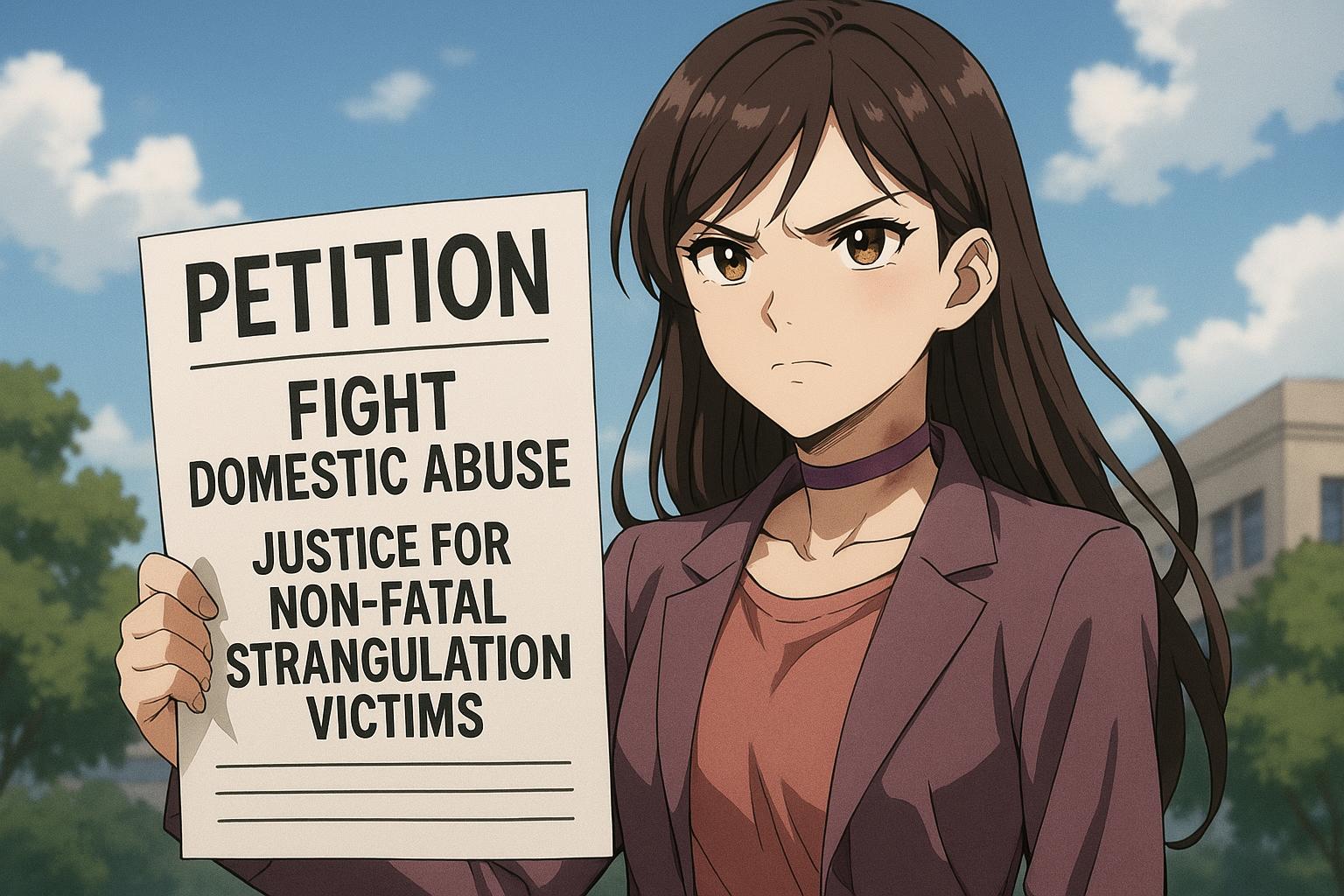The ongoing discussions in Scotland surrounding the proposal to establish non-fatal strangulation as a standalone offence underscore a critical intersection of law, mental health, and domestic abuse. This debate has been catalysed by the harrowing experiences of Fiona Drouet, whose daughter, Emily, tragically took her own life after enduring severe abuse from her partner, Angus Milligan. Milligan admitted to choking and slapping Emily while they were attending the University of Aberdeen, highlighting a broader issue of how domestic abuse manifests and is handled under the current legal framework.
In Scotland, current legislation does not specifically categorise non-fatal strangulation as an independent crime, a sharp contrast to recent amendments made by Westminster to the Domestic Abuse Act in England and Wales. This discrepancy is raising alarms among victim advocates and legal experts alike, given that non-fatal strangulation is a strong predictor of future homicide risk. According to Fiona Drouet, victims of such acts are reportedly eight times more likely to be killed by their abuser. In her petition to the Scottish Parliament, she asserts that the psychological and physical harm resulting from strangulation warrants urgent legislative change.
Experts in domestic abuse law have weighed in on these developments. Dr Emma Forbes, the National Lead for Domestic Abuse at the Crown Office and Procurator Fiscal Service (COPFS), argued that existing laws already criminalise non-fatal strangulation and that introducing a new offence could paradoxically undermine existing frameworks. Speaking to the committee considering the petition, Dr Forbes pointed out that Scotland’s law allows for significant sentencing without necessitating proof of injury, provided the act was deliberate. However, she acknowledged that the introduction of a separate offence may complicate the prosecutorial process under the Domestic Abuse (Scotland) Act, potentially weakening cases built on a pattern of abuse.
Police Scotland echoed these concerns, warning that creating a standalone offence might detract from the comprehensive case-building necessary to adequately represent the dynamics of domestic abuse. Assistant Chief Constable Steve Johnson stated that an isolated approach might fail to capture the complexities involved in cases of non-fatal strangulation, which often form part of a broader pattern of control and coercion that can lead to severe psychological harm. The existing legal provisions already encompass this form of violence, emphasising the need for public education about its implications both physiologically and psychologically.
Contrastingly, advocates from organisations focused on domestic abuse support, including Professor Cath White, Medical Director of the Institute for Addressing Strangulation, argue for the establishment of a standalone offence due to the severe consequences associated with non-fatal strangulation. Citing research that notes over half of women killed by a partner had experienced prior strangulation, she highlights a critical link between such acts and fatal outcomes. The recognition of the psychological trauma inflicted on survivors cannot be understated, as the act of strangulation often serves as a threat in abusive relationships, complicating escape and recovery for victims.
Fiona Drouet's personal journey, illuminated by the tragic loss of her daughter, serves as a poignant reminder of the urgent need for legislative reform. Emily Drouet's experiences reflect a failure in societal structures to protect victims of domestic violence. Her family only came to understand the severity of her situation after her untimely death, underscoring the critical need for legislations that not only respond to immediate physical violence but also account for the long-term psychological implications.
The Scottish Government has acknowledged the severity of the issue, with First Minister John Swinney stating that the government's commitment to examining the appropriateness of making non-fatal strangulation a specific crime will be taken seriously. While the conversation surrounding this legislative change progresses, it is vital for society to recognise the broader implications of such violence, advocating for better support systems and greater public awareness around the nuances of domestic abuse. The outcomes of these discussions may not only reshape legal frameworks but could significantly impact the lives of countless victims facing similar predicaments, offering them a greater hope of protection and justice.
Reference Map
- Paragraph 1: 1, 3, 4
- Paragraph 2: 1, 2, 5
- Paragraph 3: 1, 2, 6
- Paragraph 4: 1, 5, 7
- Paragraph 5: 1, 6
- Paragraph 6: 1, 5
- Paragraph 7: 1, 4, 6
- Paragraph 8: 1, 4, 3
Source: Noah Wire Services
